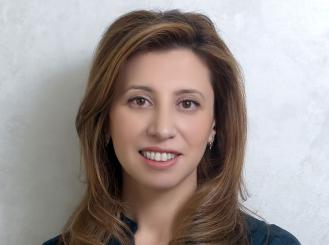By Sana Al Sukhun, MD, MSc
President, Jordanian Oncology Society; ASCO International Affairs Committee member
“World Cancer Day” is back again, prompting and reminding us all to think about what needs to be done to combat cancer. It is merely a reminder of the multidisciplinary effort needed to successfully accomplish this mission.
Every year, more and more campaigns are done on this occasion to help raise awareness, albeit the “C” word is still feared in many societies around the globe. Yes, cancer is a life threatening diagnosis, and we don’t intend to trivialize its implications, however, people need to learn to channel their fear into positive energy.
If you fear something, your natural instinct tells you to avoid it. Very few people know, and even less believe they can do something to prevent cancer. Cancer prevention is a reality that needs to be ascertained. Only 5% to 10% of cancers are caused by hereditary genetic defects, while the rest are attributed to modifiable environmental and lifestyle factors.1 Twenty percent of cancer-related mortality in developing countries is attributed to infections such as HCV/HBV and HPV, some of which can simply be prevented by vaccination.2 Another 20% is attributed to smoking. Yet, the prevalence of smoking has been increasing in the developing countries where 85% of the world’s population resides, while slowly declining in developed countries.3 Adopting a physically active lifestyle, and a diet rich in fruits, vegetables, spices, and grains has the potential to prevent not only cancer, but also obesity, which has its own health implications (e.g. diabetes and cardiovascular diseases).1,4
Once diagnosed, patients tend to despair because of already imprinted negative images of the treatment journey. They need to be reminded that different modalities are available with different adverse effects. Our treatment armamentarium has expanded and so have our supportive therapy options. Most patients can carry on with their life and their responsibilities, with full integration back into society. The positive experience of some patients is an excellent testimony to support assurance by physicians.
Let us channel that fear again into positive energy. If people fear treatment, we need to remind them of the importance of early detection, not only to improve outcome but also to simplify the treatment needed. Contrary to the widely held perception that early detection entails expensive technology; early detection is still possible even if patients cannot afford the costly screening procedures. Seeking medical advice as early as possible when they have a new complaint makes a difference.
When it comes to treatment, people always ask about new options, with the caveat that they really are looking for the word “cure.” Society should understand that “cancer” is a group of diseases and not one; even the same diagnosis can have different outcomes in different patients. In the world of cancer, we tend to use the term “remission” due to fear that the cancer could possibly surface again. We need to address the fact that it truly does not in a large proportion, but even when it does, we still can treat it and many can live with cancer as a chronic disease on treatment. Hard to imagine! Stories of patients with metastatic breast cancer on hormonal therapy for years can definitely inspire society and grow hope.
Together we—the patient, the survivor, their families, advocacy groups, physicians, pharma, government, and most importantly mainstream media—can channel our perception into positive energy to combat cancer.
References
- Anand P, Kunnumakkara AB, Sundaram C, et al. Cancer is a preventable disease that requires major lifestyle changes. Pharm Res. 2008:25;2097-116.
- World Health Organization. Tobacco fact sheet. Updated June 2016.
- de Martel C, Franceschi S. Infections and cancer: established associations and new hypotheses. Crit Rev Oncol Hematol. 2009:70;183-94.
- Christiani DC. Combating environmental causes of cancer. N Engl J Med. 2011:364;791-3.
Dr. Al Sukhun is president of the Jordanian Oncology Society, and director of oncology practice at Al Hyatt Medical Centre in Jordan.



Recent posts